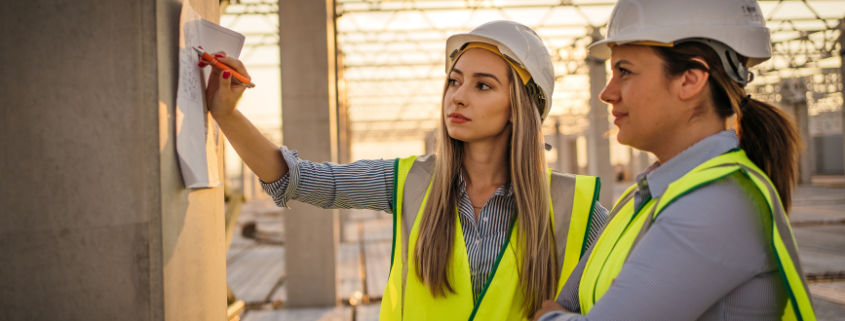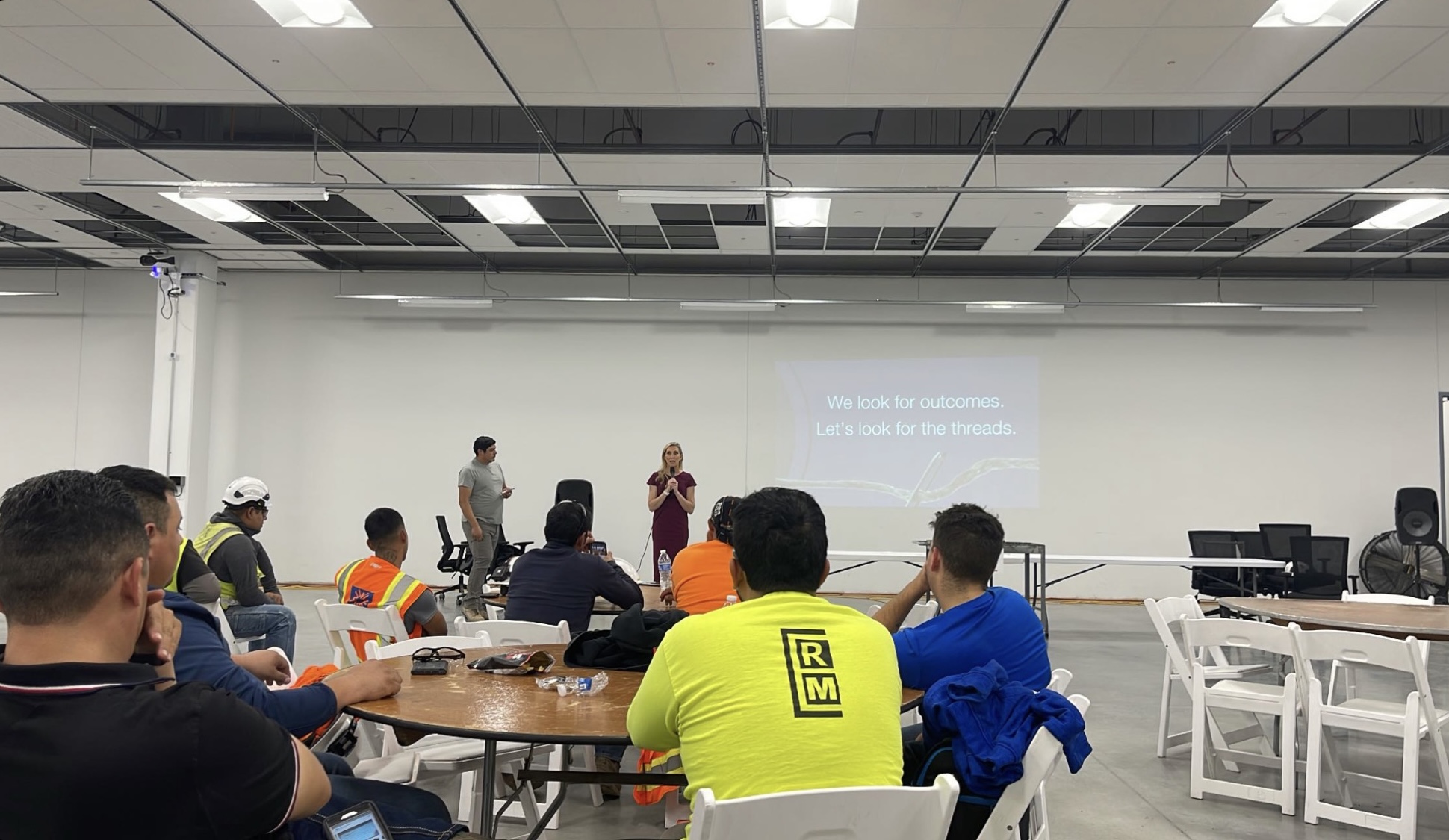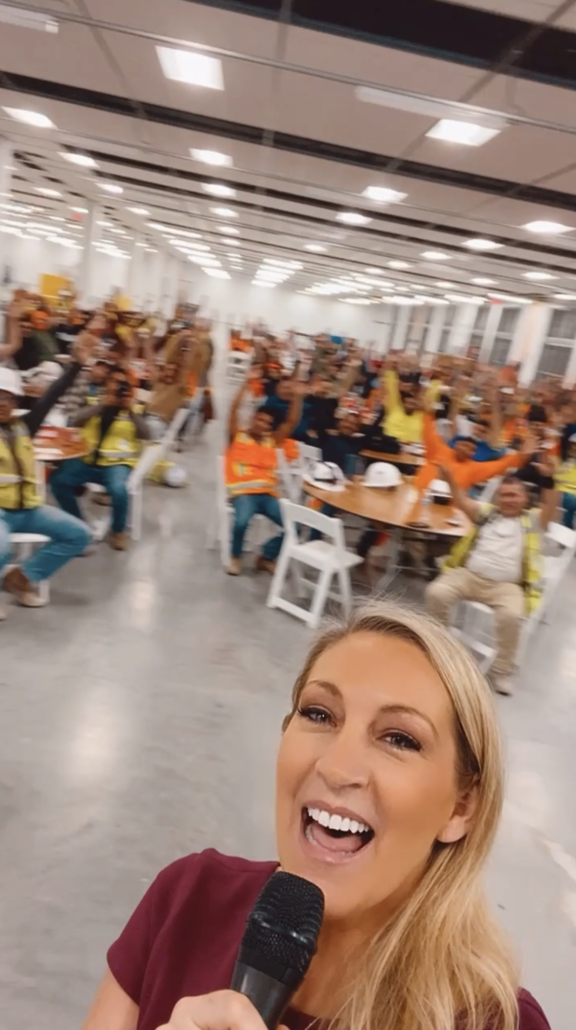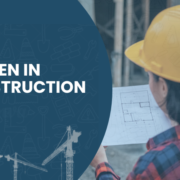Background & Motivation for Supporting Inclusion in the Construction Industry

The construction industry has been historically male-dominated. However, recent years have seen a shift toward inclusion, with more women and people of color entering the field. Inclusion leads to better outcomes for projects in the construction industry, which is a good thing for the industry.
The construction industry has long been a male-dominated field. But in recent years, there has been a push to increase diversity, equity, and inclusion (DE&I) in the construction industry. And for a good reason—studies have shown that companies with diverse teams are more innovative and perform better than those without.
What exactly is Diversity, Equity and Inclusion in the Construction Industry?
DE&I is the practice of inviting people of all backgrounds and experiences to participate in the construction process. This includes but is not limited to women, people of color, LGBTQIA+ people, people with disabilities, and veterans.
There are many reasons why DE&I is important for the construction industry. First and foremost, it allows for a wider range of perspectives during the construction process. When you have a team of people with different backgrounds and experiences, they will approach problems differently. Having diverse groups will result in innovative solutions that might not have been thought of otherwise.
When we talk about workplace culture, inclusion, and belonging, we must be sensitive to every employee feeling a sense of belonging. When we don’t recognize blind spots, employees become less engaged and don’t give their best work. By recognizing employee backgrounds, motivations, communication preferences, generational differences, and more, we allow our workplaces to be more inclusive and accepting of all walks of life.
Additionally, studies have shown that companies with diverse teams are more profitable than those without. So not only is DE&I the right thing to do, but it’s also good for business!

Why Is Diversity In Construction Important?
There are many reasons why diversity in construction is so important. For one, it helps to ensure that everyone has a fair chance at finding employment in the industry. Additionally, diversity helps to create a more well-rounded and skilled workforce, which can ultimately lead to better-quality construction projects. Finally, diversity also helps foster a sense of inclusion and understanding within the construction industry, which can help break down barriers and improve communication between different groups of people. In short, diversity is essential to the construction industry for both practical and social reasons.
McKain’s Motivation for Supporting Inclusion in the Construction Industry
When everyone feels like they belong and are valued, they are more likely to do their best work. That’s why diversity and inclusion are so important in the construction industry. Diversity allows contractors to tap into a larger talent pool. They also find that their projects benefit from different perspectives and creativity.
Shannon has a background and history working in the A/E/C space. With over 250 speaking and consulting engagements under her belt, she has worked with audiences ranging from architects, engineers, general contractors, and even specific construction areas, including ready-mix, AGC, construction financial management associations, and more. She is well-versed in this industry and a strong supporter of the advancements being made to support diversity, inclusion, and belonging in the construction space.
What Does Inclusion Mean in the Context of the Construction Industry
Unfortunately, the construction industry still has a long way to go in terms of inclusion. Women make up less than 10% of the construction workforce, and people of color are even less represented. This lack of diversity can lead to problems on construction sites, such as discrimination and harassment. It can also lead to lower quality work because contractors are not benefiting from fresh perspectives.
How Can We Achieve Greater Inclusion in the Construction Industry
Contractors can do a few things to increase inclusion in construction. One is to provide training on diversity and inclusion for all employees. This training should cover topics such as unconscious bias and how it can impact decision making, how to create an inclusive work environment, and how to identify and report discriminatory behavior.
Another thing that contractors can do is audit their hiring practices. Are you only recruiting from a few schools or only advertising job openings in certain places? Widening your recruiting net will help you attract a more diverse pool of candidates. Once you have diversified your applicant pool, it’s important to create an interview process that assesses candidates fairly. Interviewer bias can play a significant role in who gets hired, so it’s important to be aware of it and take steps to avoid it.
The Role of Government and Standards Organizations in Achieving Greater Inclusion
Leaders in the field of construction are working hard to advance inclusion and belonging in this industry. You might be familiar with the recent initiative of Construction Inclusion Week.
It’s only the second year for construction inclusion week, but it’s a step forward in the right direction. Especially since industry leaders, including Associated Builders and Contractors, Associated General Contractors of America, Culture of Care, and The National Association of Women in Construction, are all involved in creating this inclusion week. The more awareness we can generate towards these efforts, the better it will be for the construction industry as a whole.
Challenges to Achieving Greater Inclusion & Possible Solutions
With the pandemic, Quiet Quitting, and The Great Resignation, many of us have seen labor shortages and talent concerns these last few years. While there is no cure-all for the big picture, there are some ways the construction industry can combat these labor issues. Here are a few ideas:
- Get more buy-in from construction leaders for inclusion.
- Work on diverse recruitment and hiring practices.
- Bring in industry leaders and keynote speakers to discuss issues.
- Review your company policies and manuals to ensure inclusion practices exist.
McKain’s Hopes for the Future of Inclusion in the Construction Industry
Inclusion is vital for the construction industry because it improves project outcomes. Contractors who embrace diversity find that they have a wider pool of talent and that their projects benefit from different perspectives and creativity. Unfortunately, the construction industry still has a long way to go in terms of inclusion. Women make up less than 10% of the construction workforce, and people of color are even less represented. This lack of diversity can lead to problems on construction sites, such as discrimination and harassment. It can also lead to lower quality work because contractors are not benefitting from fresh perspectives. To increase inclusion in construction, contractors should provide training on diversity and inclusion for all employees, audit their hiring practices, and create an interview process that assesses candidates fairly.
There’s no doubt that DE&I inclusion is critical for the construction industry. Inviting people of all backgrounds and experiences to participate in the construction process can create more innovative solutions and build a more profitable industry.
If you need additional resources, feel free to reach out. Are you looking to book your next keynote speaker? Reach out to us on our contact us page.


Shannon McKain is a motivational keynote speaker and a business consultant based in Dallas, TX. She has worked in almost all 50 states with audiences ranging from corporate executives to student leaders.










Leave a Reply
Want to join the discussion?Feel free to contribute!